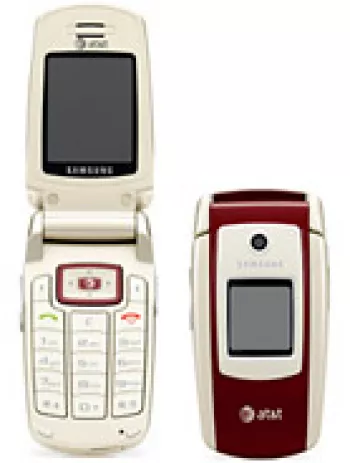
Overview of Samsung S401i
The Samsung S401i was introduced as a feature phone in July 2006. It was designed to cater to users who preferred basic mobile features without the complexities of modern smartphones. The phone comes with some core functionalities such as calling, messaging, and limited multimedia features.
Network and Connectivity
The Samsung S401i operates on GSM technology and supports GSM 900 / 1800 / 1900 bands. This ensures that it can connect to 2G networks which were prevalent during its release time. For data, it supports GPRS Class 10, allowing users to engage in basic internet browsing with the iMode browser. It lacks support for more advanced connectivity options seen in later models, such as EDGE, WLAN, or positioning services.
Design and Build
With dimensions of 88 x 44 x 19.8 mm and a weight of only 75 grams, the Samsung S401i is compact and lightweight. The design supports a Mini-SIM card and is enclosed in a simple form factor that fits easily in the palm or pocket. It was available primarily in black, highlighting its sleek and subtle appearance suitable for professional and casual settings alike.
Display Features
The device boasts a TFT display capable of rendering 65,000 colors, with a resolution of 128 x 160 pixels. While this pales in comparison to today’s high-definition screens, it was adequate for displaying simple graphics, menus, and text messages at the time.
Memory and Storage
Internally, the Samsung S401i provides 25MB of storage. This space accommodates a phonebook that can store up to 1000 entries, along with records of 10 dialed, 10 received, and 10 missed calls. The absence of a memory card slot limits expansion, keeping users reliant on the internal storage capacity provided.
Camera Specifications
The phone includes a single VGA (0.3 MP) rear camera, which supports basic photography and video recording. Unlike modern devices with advanced multi-lens setups, the camera on the S401i caters to simple image capturing without advanced settings or quality expectations.
Sound and Multimedia
Auditory features of the device include downloadable polyphonic and MP3 ringtones, alongside vibration alerts. The absence of a loudspeaker and 3.5mm audio jack means users must rely on its internal earpiece, making personal listening experiences limited.
Communication Features
Available communication channels on the device include Bluetooth, allowing file transfers to other Bluetooth-enabled devices, which was quite a beneficial feature during its release. However, there is no provision for radio or standard USB, as it uses a proprietary connection for data transfer and charging needs.
Additional Features and Battery
The Samsung S401i supports several messaging formats (SMS, EMS, MMS) and comes with two built-in games and Java support (DoJa 1.5). These features offered limited entertainment and application expansion options. The phone runs on a removable Li-Ion 800 mAh battery, providing up to 200 hours in standby mode and up to 4 hours of talk time, which was quite standard for devices of its era.
Conclusion
The Samsung S401i serves as a reflection of mobile technology in the mid-2000s, built for users seeking functionality over advanced capabilities. Its simple design, basic camera, limited connectivity options, and essential communication tools made it ideal for those needing a straightforward phone. While it doesn't stand up to modern standards, it holds historical significance in Samsung's mobile lineup and serves as a reminder of how far mobile technology has evolved.
Main Features of Samsung S401i
- Compact and lightweight design with dimensions 88 x 44 x 19.8 mm and weight of 75 g.
- TFT display with 65K colors for a vibrant viewing experience.
- GSM technology supporting 2G bands GSM 900 / 1800 / 1900.
- Decent internal storage of 25MB with a phonebook capacity of 1000 entries.
- VGA main camera with the capability to record videos.
- Bluetooth connectivity available for wireless communication.
- Supports SMS, EMS, and MMS messaging capabilities.
- Removable Li-Ion 800 mAh battery providing up to 200 hours of standby time and 4 hours of talk time.
Disadvantages of Samsung S401i
- Lacks EDGE support, limiting data speed options.
- No external memory card slot, restricting storage expansion.
- Small internal memory of 25MB.
- No 3.5mm headphone jack for audio connectivity.
- No loudspeaker option for hands-free use.
- Absence of a front selfie camera.
- No WLAN (Wi-Fi) connectivity available.
- Lacks GPS positioning features.
- Proprietary USB connection, limiting compatibility with standard USB cables.
- No FM radio feature included.
- Display resolution and color depth (128 x 160 pixels, 65K colors) are relatively low by modern standards.

View Also
More Phones
All Rights Reserved +14266 Phones © Mobilawy 2025

























